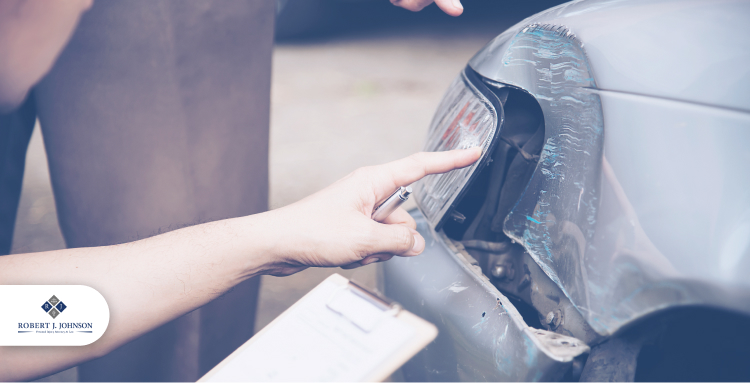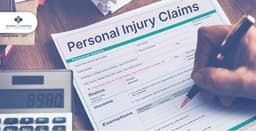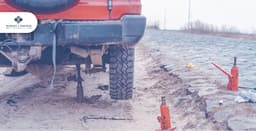
January 5, 2025
How to File a Truck Accident Claim in Florida
It begins with a collision—a moment of impact that shatters the ordinary and scatters it across a Florida highway. You’re left standing there, the air thick with the smell of burnt rubber and diesel, wondering how a routine drive turned into chaos. The truck looms large in your memory, its sheer size a reminder of the force that disrupted your life.
In the aftermath, questions pile up faster than answers. Who is responsible? What do you do next? And how does one even begin to untangle the legal web surrounding a truck accident in Florida? These aren’t just legal matters; they’re also human ones—questions of fairness, survival, and the quiet need to rebuild what’s been broken.
1) Step 1: Take the Right Steps at the Scene
The first moments after a truck accident are critical for your safety and for gathering evidence to support your case.
Stay Safe
Your safety should always come first. If possible, move to a safe location away from traffic. Call 911 to report the accident and wait for emergency responders to arrive. Avoid arguments or confrontations with the truck driver or others involved. Staying calm can help prevent further complications.
Gather Key Evidence for Your Claim
Collect as much evidence as you can while still at the scene. Take clear pictures of the damage to your car, the truck, and the surrounding area. Include details like skid marks, road signs, traffic lights, or anything that might help explain how the accident happened. If weather conditions or poor road maintenance played a role, document that as well.
Exchange Information
Talk to the truck driver and get their name, contact details, insurance information, and their employer’s name. If there are witnesses, ask for their contact information too. Witness statements can be valuable if there’s any dispute about what happened.
Get a Police Report
When the police arrive, make sure to provide them with all the necessary details about the accident. Request a copy of the police report once it’s available. This document can help you in proving your case later.
2) Step 2: Get Medical Attention Right Away

After a truck accident, some injuries might not be immediately obvious. Seeking medical attention as soon as possible is critical for both your health and your case.
Why It’s Important
Injuries like whiplash, internal bleeding, or concussions may not show symptoms right away. Delaying treatment can make these injuries worse and could weaken your claim. Insurance companies may argue that your injuries aren’t serious if you wait too long to see a doctor.
What to Do
Go to a hospital, urgent care clinic, or your primary doctor immediately. Follow all medical advice and keep detailed records of your treatments, including bills and reports. These documents will help demonstrate the extent of your injuries and the costs you’ve incurred. Check out the Centers for Disease Control and Prevention (CDC) for tips on injury prevention and recovery.
3) Step 3: Notify Your Insurance Company
In Florida, your car insurance is a big deal after an accident because of the state’s no-fault insurance rules.
Florida’s No-Fault Insurance Rule
Under Florida law, your Personal Injury Protection (PIP) insurance will cover your initial medical costs, regardless of who caused the accident. However, PIP benefits are capped at $10,000. In severe truck accidents, this may not be enough to cover all your expenses.
How to Notify Your Insurer
Call your insurance company as soon as possible and give them basic details about the accident. Be cautious when speaking with them. Avoid admitting fault or making recorded statements without consulting a lawyer first. Insurance companies might try to use your words against you later. Visit the Florida Office of Insurance Regulation for more details on how PIP insurance works in the state.
4) Step 4: Identify Who Is Responsible
Truck accidents often involve more than one party. Identifying the responsible party is key to getting the compensation you deserve.
Why This Matters
In a truck accident, liability could fall on several parties, including the truck driver, their employer, or even the manufacturer of the truck. For example, a driver may be at fault for reckless driving, while the trucking company might share responsibility if they fail to maintain the vehicle properly.
How to Find Out Who’s at Fault
Your attorney will investigate to determine who is responsible. They might review the truck driver’s history, including their hours of service and any past violations. They’ll also examine the trucking company’s maintenance logs and hiring practices. If a mechanical issue caused the crash, the manufacturer could be held liable. Visit the Federal Motor Carrier Safety Administration (FMCSA) for information about trucking regulations and safety standards.
5) Step 5: Calculate Your Damages

Truck accidents often result in significant financial losses. Calculating your damages is an important step in filing your claim.
What You Can Be Compensated For
Medical Expenses: This includes hospital stays, surgeries, rehabilitation, and even future treatments you may need.
Lost Wages: If your injuries prevent you from working, you can claim lost income, including reduced earning capacity.
Property Damage: This covers the cost of repairing or replacing your vehicle.
Pain and Suffering: Compensation for emotional distress and reduced quality of life due to the accident.
Keep Accurate Records
Save all your receipts, invoices, and pay stubs to document your financial losses. Take pictures of your recovery process and keep a journal detailing how your injuries have affected your daily life. This personal documentation can make your case powerful.
6) Step 6: Work With a Truck Accident Attorney
Truck accident cases can be complicated, but having an experienced attorney on your side can really help.
Why having an Attorney by your side matters
Trucking companies and their insurers often have legal teams that work hard to minimize payouts. Without a lawyer, you might end up with far less compensation than you deserve.
What Your Attorney Will Do
Your attorney will investigate the accident, gather evidence, and build a strong case on your behalf. They will handle negotiations with insurance companies and represent you in court if necessary. By letting your attorney handle the legal details, you can focus on your recovery. Use the American Bar Association (ABA) directory to find experienced truck accident attorneys in your area.
7) Step 7: Understand Florida’s Time Limits for Claims

Every state has deadlines for filing legal claims, and Florida is no exception.
Know the Deadlines
In Florida, you have four years from the date of the accident to file a personal injury claim. If the accident resulted in a wrongful death, you have two years to file.
Why it's important to act fast
Starting your claim early is important because evidence can disappear, and witnesses may forget key details over time. The sooner you begin, the stronger your case will be. Visit Florida Courts to read about the deadlines and legal process.
8) Step 8: What Happens During the Claims Process
Filing a truck accident claim involves several stages. Knowing what to expect can help you feel more prepared.
Filing the Claim
Your attorney will file the claim with the insurance company of the at-fault party. You’ll need to provide evidence, including photos, medical records, and proof of damages.
Negotiation
Most insurance companies start with a low settlement offer. Your attorney will negotiate on your behalf to get a fair amount.
Possible Outcomes
Settlement: Most truck accident cases are resolved through settlements without going to court.
Trial: If a fair settlement isn’t reached, your case might go to court. Your attorney will present your case to a judge or jury.
Need more details? Check out these related posts:
Robert J. Johnson: Turning the Tables in Your Favor
If you’ve been in a truck accident, we’re ready to stand by your side and fight for what you deserve. With over 20 years of experience in the legal community and insurance industry, our team knows how to get you the compensation you deserve. We take care of everything—gathering evidence, handling insurance companies, and filing the necessary paperwork—so you can focus on recovery.
Not afraid to fight for justice, we’re committed to securing fair compensation for you and your family, covering everything from medical bills to future expenses.
Get in touch for a free consultation: Contact Robert J. Johnson.





















